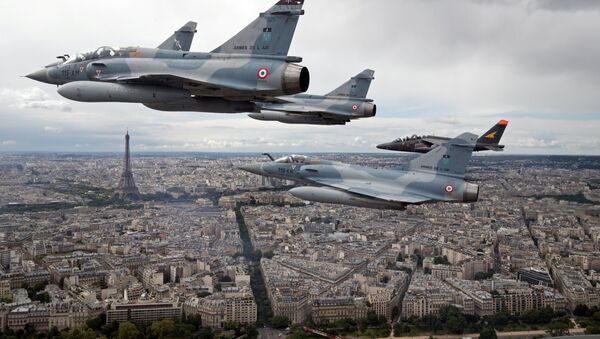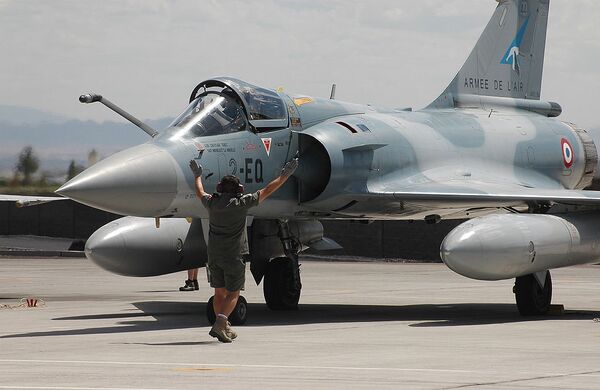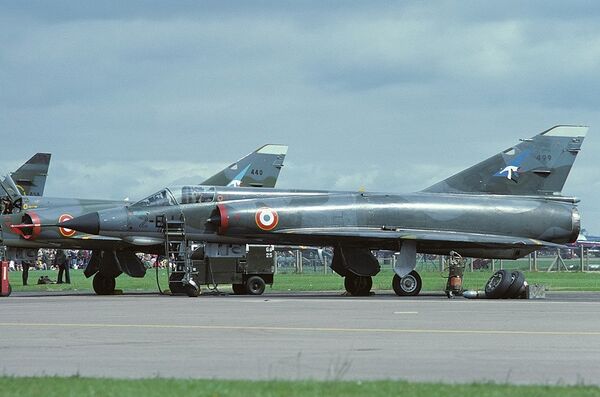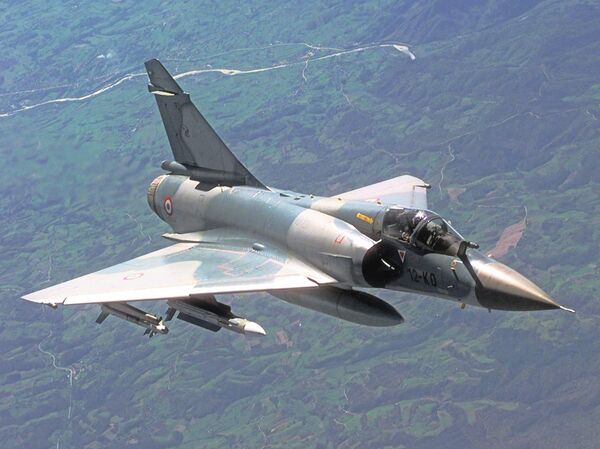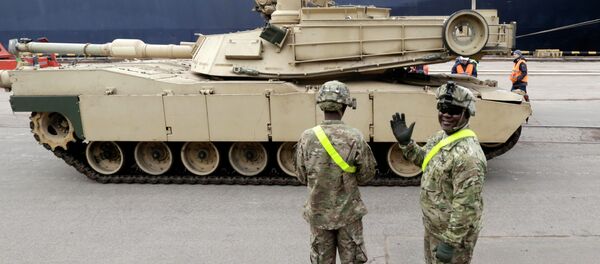A correspondent from the Swiss daily Le Temps has visited a home base of the French fighter squadron 'Chasse de 1/2 Cigognes' near Luxeuil-les-Bains commune in eastern France.
The main mission of the squadron is air policing, surveillance, control and the identification of aircraft in European airspace.
The pilots of Mirage 2000-5F multirole combat fighters spoke about their encounters with Russian jets. On February 9, they were scrambled to escort two Russian Tupolev Tu-160 bombers (NATO designation Blackjack), nicknamed the White Swan by pilots.
Russian aircraft flew down the west coast of Ireland but "at no point did they enter UK territorial airspace.”
The encounters with the Russian jets are "nothing new" for the French squadron, whose emblem features the storks the group is named after.
Four of their Mirages have recently returned from Lithuania, where they were on a Baltic air-policing mission as part of the NATO mission to defend the three Baltic states.
In four months, the pilots said, the alert was sounded for them to take flight 23 times to "carry out missions of surveillance, control and identification."They carefully avoided the word "interception," calling it an "escort," as "the Russians at no point have violated the airspace of the Baltic countries," Colonel Isaac Diakité, the detachment commander, told the newspaper.
"We take pictures, the Russians too. Sometimes we greet each other with our hands. Everyone does his job," said Loïs, one of the French pilots.
"The most important thing is to keep a cool head," said Nicolas, another pilot.
"The Russians are not our enemies. They are there? Well, us too," he added.
During these four months in Lithuania, Nicolas, Lois, Henri and the other pilots saw many Russian aircraft in the Baltic sky: military transport planes, bombers and fighters, flying separately or in squadrons.
"The tension is permanent. Because we know that the slightest incident could have tectonic consequences on the international level," the Colonel said.
This is perhaps why France remains very discreet on these missions and, unlike the British, Spaniards or Belgians, diffuses very few photos of the "encounters" with the Russians in the sky, the outlet concludes.

